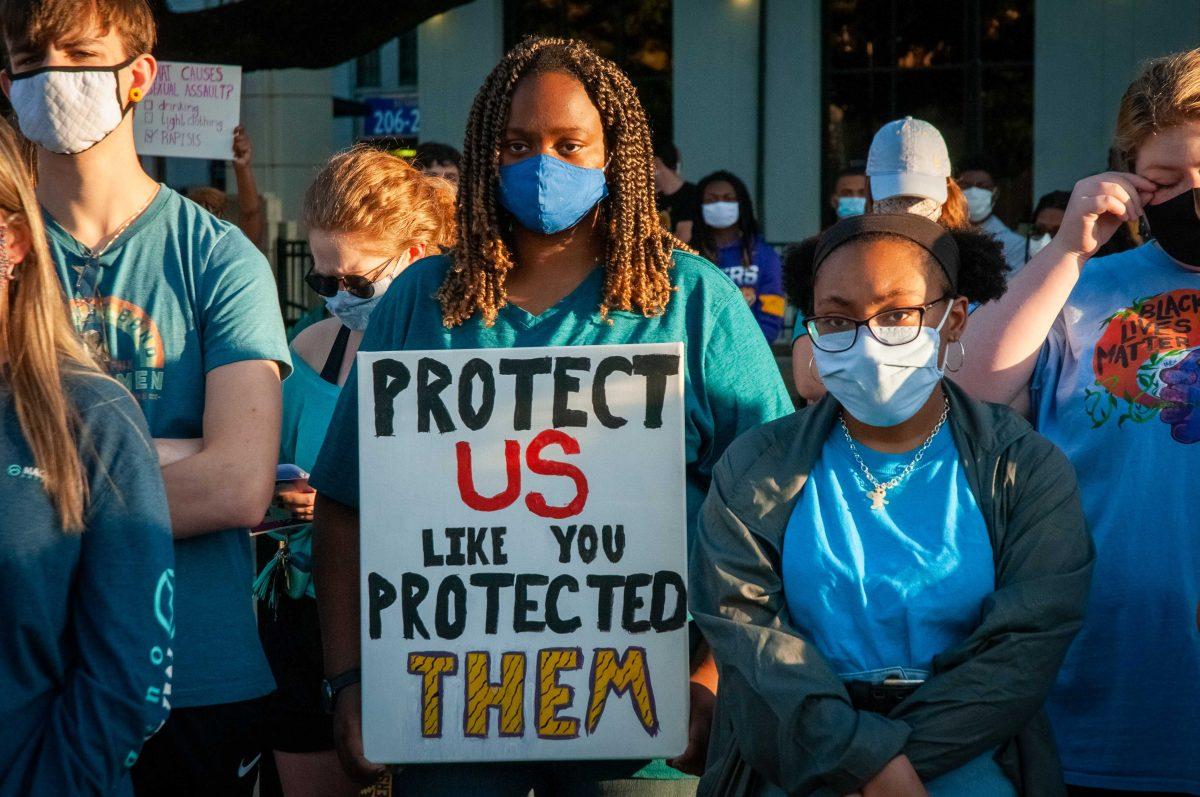Students and advocacy groups have worked to seek justice on behalf of survivors following the release of a USA Today report which detailed LSU’s alleged mishandling of sexual assault cases. In the months since, many have expressed feeling symptoms of burnout and overall exhaustion from advocating without seeing the desired results.
Tigers Against Sexual Assault (TASA) is one of the largest survivor advocacy student organizations on LSU’s campus. Shortly after the USA Today article was released, the group organized a protest at Tiger Stadium where nearly 300 survivors and allies gathered to demand change. Since then, they have worked with administration, the law firm Husch Blackwell and Student Government to form solutions for the sexual assault problems that exist on campus.
Angelina Cantelli, co-president of TASA, testified at a Senate committee meeting March 10 and said that she and her fellow student leaders have been made to feel powerless to enact change on campus.
“So many people have been asking us to organize other protests and other demonstrations demanding that people are fired, and I personally do not know if I can do it again,” Cantelli said in tears. “I don’t know if I have the strength to continue fighting. It is draining. I’m tired of having to do this.”
Cantelli said student leaders often feel they are the ones who have to push for change, when it should be administration and the legislature taking action.
The legal director of STAR, a local non-profit created to help sexual assault survivors, Morgan Lamandre expressed similar feelings of burnout during the legislative hearing.
“Every day of my life I talk to people who have been sexually abused,” Lamandre said. “And it’s hard. But what’s harder is when you’re constantly going to the system and they let you down. It’s the second rape.”
Lamandre said Louisiana is one of the few states that does not fund sexual assault services for victims and that LSU’s culture of negligence stems directly from the state’s.
Mass communication sophomore Kimsey Stewart said she has worked tirelessly over the past year in TASA and Greek Life to support survivors. She said at times it’s difficult to continue fighting.
“I go back and forth from feeling burned out and feeling like I can’t stop,” Stewart said.
Stewart said she often thinks of her 16-year-old sister, who is starting to tour colleges, and the world she wants her to go into, as well as the college culture she wants her to experience. Stewart said she fights for survivors because she wants her sister and every woman on campus to feel safe, and to know their university will support them above all else.
“I just keep thinking, I wish someone had done this for me,” Stewart said. “So I have to keep going, I have to keep being that advocate.”
‘It is draining’: Some LSU students experience burnout from fighting for Title IX reform
March 31, 2021
LSU students stand in support of sexual assault survivors on Friday, Nov. 20 at Pete Maravich Assembly Center on N Stadium Dr.








